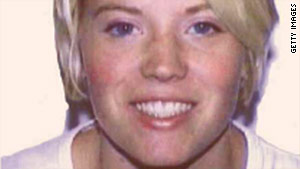Bradlee Dean’s Lawyer Claims Rachel Maddow’s Career Is Over For Telling The Truth
by Bridgette P. LaVictoire
Radio minister and former rock singer Bradlee Dean may want to have his and his lawyer’s head examined. It is possible to sue someone for defamation if- and only if- you can prove that the information that they disseminated was both patently false and designed to hurt the career of a particular person. The problem here is that what Dr Rachel Maddow told her viewers was, well, the truth. She aired a clip of Dean praising the murder of lesbians and gays by Muslims in its entirety, and then aired the disclaimer by Dean that he did not call for the murder of lesbians and gays.
The fact that his ministry and personal finances have been severely damaged over this is not her fault. People today are far less tolerant of homophobes like Dean than they were a decade ago. The trial will be very quick. The lawyers for Dr. Maddow and MSNBC will say “Mr. Dean, did you or did you not say these things in this clip here?” Dean will say, under oath, “Yes, sir” The lawyers will then ask “did you or did you not issue this disclaimer also found in this clip?” Dean will say “Yes, sir.” The lawyers will then say “So, exactly how did Dr. Maddow defame you and destroy your ministery?”
That is not stopping Dean’s lawyer Larry Klayman from claiming that Maddow’s career was over. The two spoke by phone to the Michele Tafoya Show on CBS Radio. According to Talking Points Memo:
Maddow is “trying to destroy Bradlee Dean, trying to destroy Bachmann,” Klayman said, adding that Maddow’s remarks were the “most outrageous statement I’ve heard in my entire life, and I’ve lived a bit here.”Tafoya, pressing Dean a bit on his position on homosexuality, asked him if he indeed believes it is an “abomination.”“If you’re asking if I’m in agreement with the word of God, then yes I am,” Dean responded.Maddow’s remarks have harmed both Dean’s reputation and finances, Klayman said. “You can’t just say whatever you want,” he said. “This is going to cost MSNBC hundreds of millions of dollars and will probably end the career of Rachel Maddow.”
Yes, she reported exactly what Dean said without much in the way of condemnation or anything other than laughing her backside off. So, how this is going to cost MSNBC or Dr. Maddow anything is rather hard to figure out. At issue is this statement from Dean:
“Muslims are calling for the execution for homosexuals in America, this was just released yesterday and it shows you that they themselves are upholding the laws that are even in the Bible, the Judeo Christian God. They seem to be more moral than even the American Christians do. Because these people are livid about enforcing their laws, they know homosexuality is an abomination. And I continually reach out to the homosexual communities on this radio show, and I warn them, which ones love? Here you have Obama condemning it behind the backs of the homosexuals but to their faces he’s promoting it. I say this to my gay friends out there the ones that continuously nitpick everything I say. Hollywood is promoting immorality and the God of the Heavens in Jesus names is warning you to flee from the wrath to come, yet you have Muslims calling for your execution. If America won’t enforce the laws, God will raise up a foreign enemy to do just that’s what you’re seeing in America today. Read Leviticus 26 America.”
Dean also said “The bottom line is this … they [homosexuals] play the victim when they are, in fact, the predator. On average, they molest 117 people before they’re found out. How many kids have been destroyed, how many adults have been destroyed because of crimes against nature?” In fact, the last statement has been proven manifestly incorrect repeatedly despite constant repetition by the homophobes out there.
And this clip from Dr. Rachel Maddow:
Klayman is also claiming that MSNBC and Dr. Maddow are trying to sabotage the Presidential Campaign of Michele Bachmann by going after Dean, though that claim is also untrue since this began back during the Minnesota gubernatorial race. Here is the audio of the program:
Dean has been doing a lot of ducking and only going on supportive venues for his interviews. He canceled an appearance on Michelangelo Signorile’s show recently, but appeared on the show of Alex Jones. Dean, of course, pulled out all the stops on his homophobia by claiming that lesbians and gays are targeting children for recruitment. Of course, that is false. Rather religious leaders love to target children for recruitment. What is the old Jesuit motto? “Give me a child until the age of seven and he is mine for life.” Dean and Jones talked about children as young as seven being taught about ‘fisting’, which is rather absurd. Here is the transcript:
DEAN: It’s about protecting a particular people who are being attacked, namely the young in public high schools and that’s what this is really about and what they want to do is they want to keep me on the defense so they can stay on the offense so they can continuously play the victim.JONES: All over the country, it is a fact, and I wouldn’t want heterosexuals [sic] recruiting 7-year-olds. They target children and I can’t even say on the radio for 20 years what’s been taught.DEAN: Yep.JONES: But they teach children sexual acts that can kill you.DEAN: Yep.JONES: I mean, we’re talking about fisting, ladies and gentlemen. Things like that are taught to 7-year-olds.
Dean, basically, is claiming that people who have an agenda opposite or opposed to his are targeting him for destruction for a variety of reasons. This is not defamation. That is the normal course in a political debate. So, honestly, Dean might want to walk away before he and his ministry are in worse shape than they are now.
The allegations by Bradlee Dean and You Can Run But You Cannot Hide International (YCR) are completely without merit. The American Independent News Network stands firmly behind our news site, The Minnesota Independent; our reporter, Andy Birkey; as well as their reporting on Dean and his ministry. The complaint describes Birkey as taking “a ‘special interest’ in Plaintiffs Dean and YCR because he is a secularist and/or atheist and gay activist with a politically left ideology who despises people of faith.” However, in giving Birkey and The Minnesota Independent first prize for Best Continuing Coverage of their reporting on YCR, the 2010 judges for the Minnesota Professional Chapter of the Society of Professional Journalist’s Page One Awards stated, “the reporter [Birkey] takes a deep-dive with an even-handed approach into a weighty subject sure to provoke controversy from various standpoints. Leads readers to think about serious public policy and constitutional issues.”






















